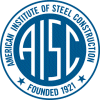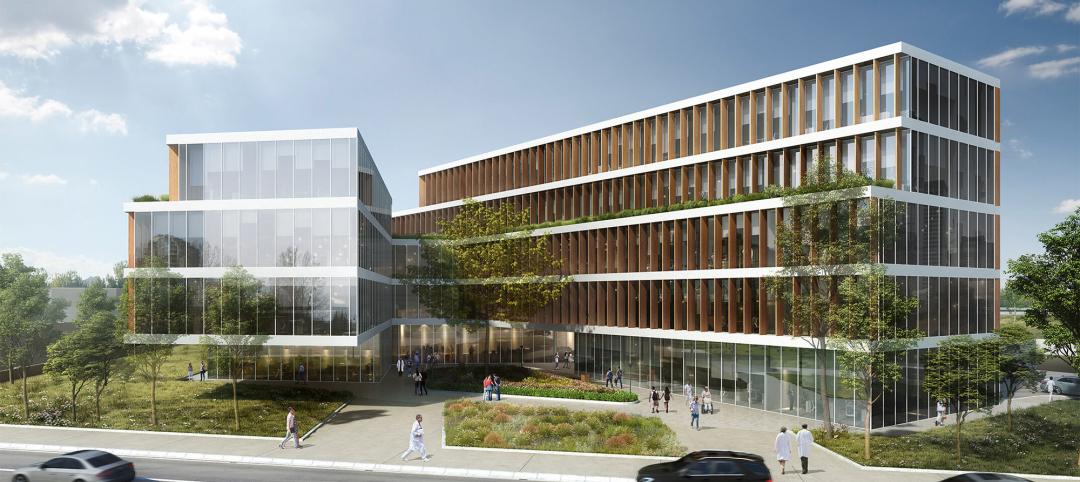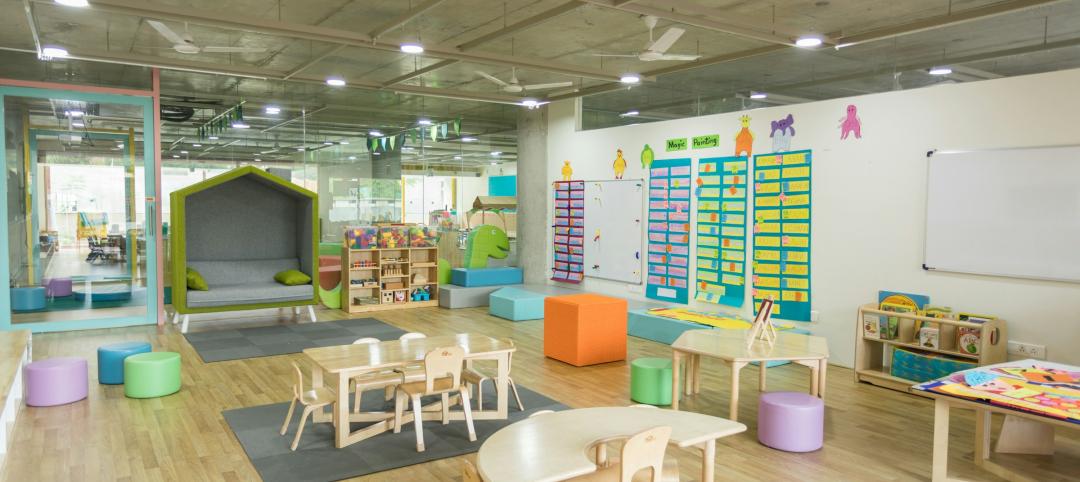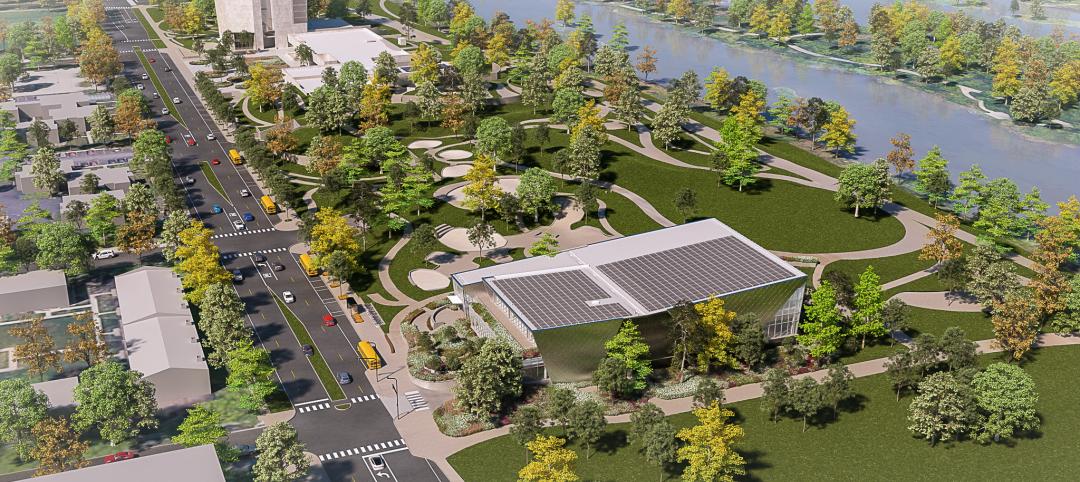The American Institute of Steel Construction (AISC) is working to bring that vision to reality by developing a three-step interoperability strategy to evaluate data exchanges and integrate structural steel information into buildingSMART's Industry Foundation Classes (IFC). IFC is an open and neutral data exchange format that covers multiple disciplines across the construction industry.
AISC has been at the forefront of advancing interoperability through open standards since adopting the CIMSteel Integration Standard (CIS/2) in 1998 as an open standard for the structural steel industry. Since then, however, the landscape of software interoperability and integration has changed dramatically and even after a decade of progress, the issue is not solved. In addition, CIS/2's "steel-only" format has meant that other solutions were needed as other disciplines began demanding data exchange.
These cumulative changes have led to AISC's new strategy to advance interoperability across the construction industry: assess and enhance data exchanges available today and integrate that knowledge into IFC, a common data schema that makes it possible to hold and exchange data between different proprietary software applications. Although IFC has yet to address some details of a building's life cycle, and does not yet cover the depth of data that CIS/2 encompasses, the IFC schema aspires to cover every aspect of design, procurement, manufacture and assembly, and operations and maintenance.
Acknowledging that raising IFC to the level required by the structural steel industry will take time, AISC has adopted a three-part strategy, outlined as follows:
- Short term: Ensure model data can be exchanged as needed by the structural steel industry, regardless of the nature of the exchange or format used
- Medium term: Promote IFC and make the format more accessible and understood by working with buildingSMART, other trade organizations, academia and subject experts.
- Long term: Facilitate the development and implementation of IFC to satisfy the needs of the structural steel industry.
This new strategy maintains AISC and the structural steel industry's leadership in interoperability and ensures that data related to structural steel can be exchanged up and down the supply chain and with other disciplines and trades. AISC holds the view that open standards will never be able to transfer every piece of data a user or client may want, or indeed that two software programs could exchange.
"A combination of open standard and proprietary enhancement will always be state of the art, but the key is to always be raising the quality of data exchanged within the open format," commented Chris Moor, AISC director of industry initiatives. "To that end, this overall strategy feeds itself: The short term strategy is an ongoing effort and takes advantage of the myriad of exchanges available, now or in the future, documenting them and learning from them - what data is exchanged and why. This information then forms the basis of long term goals to develop and implement IFC to a very high standard, raising the bar once more for open standards."
Added Deke Smith, executive director of the buildingSMART alliance, "I look at AISC as the gold standard for associations. AISC is implementing the profound changes necessary to transform the industry as a service to the constituents they represent. If all the market sectors had organizations representing them with this level of understanding and dedication to getting the job of interoperability done we would see a far more effective construction industry in the United States, one that was more competitive internationally."
More information about the evolution of interoperability and AISC's novel approach to moving it forward can be found in the Fall 2011 issue of the Journal of Building Information Modeling (JBIM), available for free downloading at http://www.wbdg.org/references/jbim.php. A copy of the article is also available on AISC's website, here. BD+C
Related Stories
Multifamily Housing | Apr 12, 2024
Habitat starts leasing Cassidy on Canal, a new luxury rental high-rise in Chicago
New 33-story Class A rental tower, designed by SCB, will offer 343 rental units.
Student Housing | Apr 12, 2024
Construction begins on Auburn University’s new first-year residence hall
The new first-year residence hall along Auburn University's Haley Concourse.
K-12 Schools | Apr 11, 2024
Eric Dinges named CEO of PBK
Eric Dinges named CEO of PBK Architects, Houston.
Construction Costs | Apr 11, 2024
Construction materials prices increase 0.4% in March 2024
Construction input prices increased 0.4% in March compared to the previous month, according to an Associated Builders and Contractors analysis of the U.S. Bureau of Labor Statistics’ Producer Price Index data released today. Nonresidential construction input prices also increased 0.4% for the month.
Healthcare Facilities | Apr 11, 2024
The just cause in behavioral health design: Make it right
NAC Architecture shares strategies for approaching behavioral health design collaboratively and thoughtfully, rather than simply applying a set of blanket rules.
K-12 Schools | Apr 10, 2024
A San Antonio school will provide early childhood education to a traditionally under-resourced region
In San Antonio, Pre-K 4 SA, which provides preschool for 3- and 4-year-olds, and HOLT Group, which owns industrial and other companies, recently broke ground on an early childhood education: the South Education Center.
University Buildings | Apr 10, 2024
Columbia University to begin construction on New York City’s first all-electric academic research building
Columbia University will soon begin construction on New York City’s first all-electric academic research building. Designed by Kohn Pedersen Fox (KPF), the 80,700-sf building for the university’s Vagelos College of Physicians and Surgeons will provide eight floors of biomedical research and lab facilities as well as symposium and community engagement spaces.
K-12 Schools | Apr 10, 2024
Surprise, surprise: Students excel in modernized K-12 school buildings
Too many of the nation’s school districts are having to make it work with less-than-ideal educational facilities. But at what cost to student performance and staff satisfaction?
Industrial Facilities | Apr 9, 2024
Confessions of a cold storage architect
Designing energy-efficient cold storage facilities that keep food safe and look beautiful takes special knowledge.
Cultural Facilities | Apr 8, 2024
Multipurpose sports facility will be first completed building at Obama Presidential Center
When it opens in late 2025, the Home Court will be the first completed space on the Obama Presidential Center campus in Chicago. Located on the southwest corner of the 19.3-acre Obama Presidential Center in Jackson Park, the Home Court will be the largest gathering space on the campus. Renderings recently have been released of the 45,000-sf multipurpose sports facility and events space designed by Moody Nolan.

















